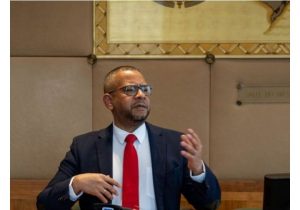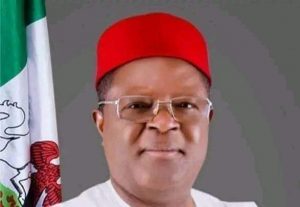Nigeria’s 2024 Budget Sparks Concerns Over Impact on Infrastructure and Ordinary Citizens

Nigeria’s recently proposed 2024 budget of N27.5 trillion has evoked mixed reactions, with both optimism and pessimism regarding its potential impact on ordinary citizens, particularly the allocated N1.33 trillion for infrastructure.
Despite the country’s substantial infrastructure deficit, the 5% allocation for infrastructure has raised concerns about its adequacy.
The security and defense sector received the highest allocation of N3.25 trillion, representing 12%, followed by education with N2.18 trillion.
The total budget marks a 10.8% increase from the 2023 figure of N24.82 trillion.
The Minister of Budget and National Planning, Atiku Bagudu, outlined that the budget targets an estimated revenue of N18.32 trillion, with a deficit of N9.18 trillion.
A significant portion of the budget, N8.490 trillion (30%), is allocated for debt servicing, while N9.918 trillion is for recurrent non-debt expenditure, and N7.717 trillion is allocated for the Development Fund to support capital expenditure.
Despite the optimism expressed in naming the budget “Budget of Renewed Hope,” concerns have been raised about the realistic expectations of achieving its goals.
The CEO of SD & D Capital Management, Mr. Idakolo Gbolade, expressed doubt about the budget’s positive impact on ordinary Nigerians, pointing out that the N1.33 trillion for infrastructure failed to reflect the savings from fuel subsidy removal in June.
Critics argue that a single annual budget may not effectively address Nigeria’s infrastructural challenges, emphasizing the need for a more comprehensive and sustained approach.
Some experts also question the realism of the budget estimates, particularly the assumption of a N750/$1 exchange rate and a daily crude oil production of 1.78 million bpd.
While some remain pessimistic, others, including economist Prof. Segun Ajibola, maintain optimism that the budget could positively impact Nigerians if its provisions are effectively implemented.
Ajibola highlights the importance of alternative funding models, such as Public-Private Partnerships and Joint Ventures, to address the country’s substantial infrastructural deficit.
Source: Daily Post





